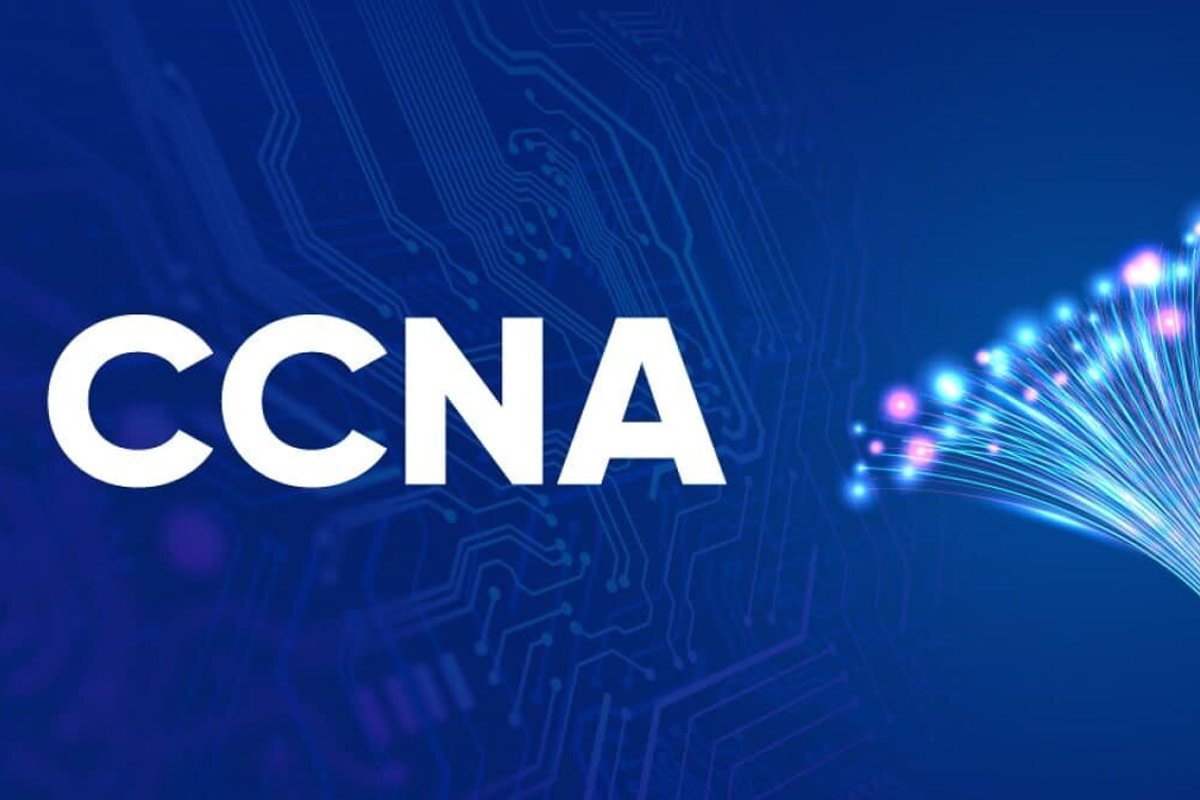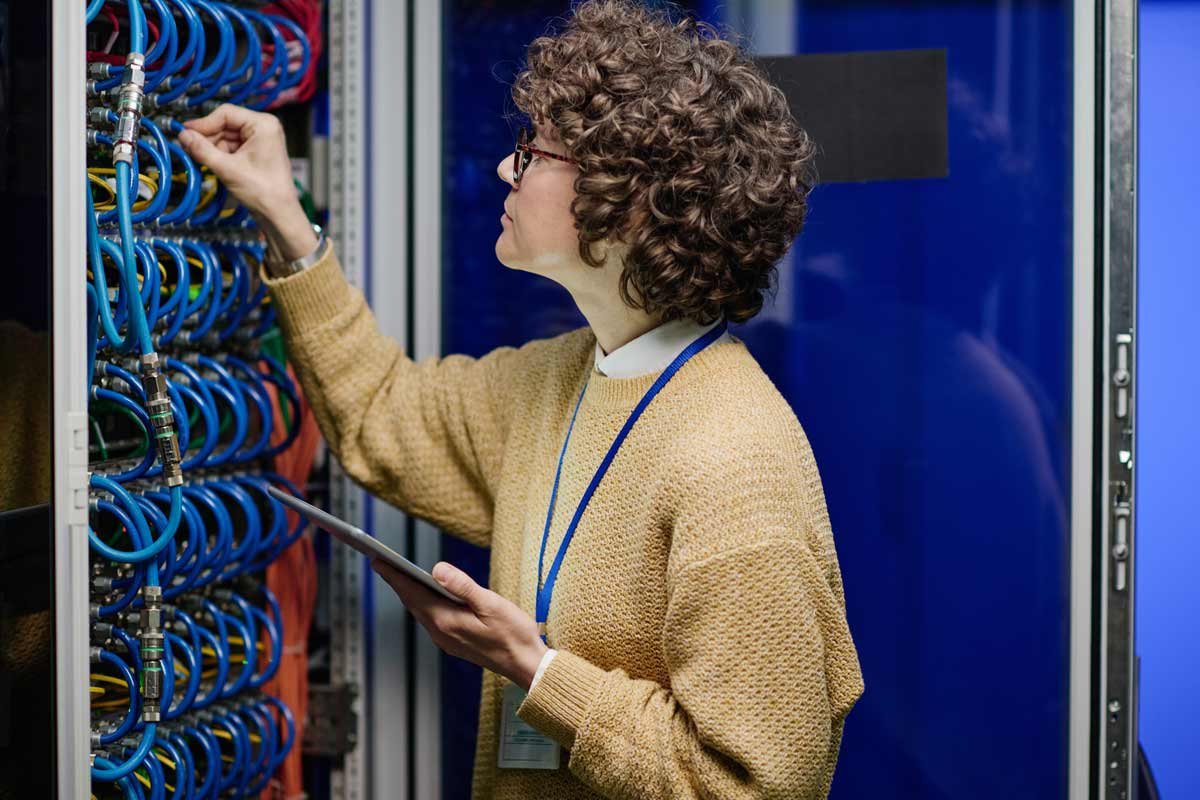Home Logistics The Logistics Revolution of Warehouse Management in India...
Read More- Home
- Networking
- CCNA Training and Certification in 2025
CCNA Training and Certification in 2025

Key Areas of CCNA

There are six main topics for CCNA training and certification. These six topics ensure a complete cover of the syllabus.
Network Fundamentals
Network fundamentals build foundational concepts, providing a solid basic understanding of the network’s operation. It covers the basics of networking concepts and devices and understands the OSI and TCP/IP models. The topic also covers Ethernet concepts, network topologies, IPv4 and IPv6 addressing, and subnetting.
Routing and Switching
The routing and Switching area focuses on how routers and switches facilitate efficient data transmission. Gain expertise in configuring and troubleshooting routers and switches for efficient data flow. Virtual Local Area Networks (VLAN) and inter-VLAN routing are included. It includes static and dynamic routing protocols like RIP, OSPF, and EIGRP. Switching concepts such as Spanning Tree Protocol (STP) are also included.
Security Basics
Security basics emphasize protecting the network from threats. They introduce security concepts and best practices. For example, you can configure ACLs (Access Control Lists) to restrict access to sensitive network parts. By implementing strong password and logging mechanisms, you can understand how firewalls protect the perimeter, VPNs, and device security. Also, the focus should be on essential threat prevention from DDoS attacks and phishing. It secures device access and authentication.
IP Addressing and Subnetting
Master the art of IP addressing by understanding the structure, format, and use cases of IPv4 and IPv6. It helps to learn to divide an extensive network into smaller networks for efficient IP addresses and better security—design networks with appropriate IP address schemes to ensure scalability and efficiency. Explore Classless Inter-Domain Routing (CIDR) for flexible IP address allocation.
Automation and Programmability
This area focuses on modern practices and the basics of network automation and programmability. It also focuses on understanding Software-Defined Networking (SDN) and controllers. It shows how SDN decouples the control plane from the data plane, enabling centralized network management. This section focuses on Application Programming Interfaces (APIs) and Configuration management tools like Ansible, Python scripting, etc…
Wireless Networking
Wireless Networking focuses on untethered communications and their unique challenges. It also focuses on the fundamentals of wireless technologies, the configuration, and troubleshooting of wireless LANs. Configure and troubleshoot Access Points (Aps) for reliable wireless connectivity. Also, know how to implement security protocols.
Why pursue CCNA certification?

Pursuing a Cisco Certified Network Associate certification can benefit individuals in many ways. The organizations are growing daily, which will increase the importance of robust networks and skilled professionals. The CCNA-certified professionals stand out in the job market. It aims to establish a future-proof career in Networking and IT. CCNA is a worldwide recognized foundational networking certification. It opens the door to various career opportunities, such as Network Engineer, Network Administrator, and IT Support Specialist. This course validates your knowledge and skills in networking fundamentals, routing, switching, and network security. It is a stepping stone for advanced certifications like CCNP and CCIE. It helps you to specialize in security, wireless, data center, and other domains. CCNA training and certification covers the practical, hands-on skills necessary for configuration and troubleshooting. It improves the knowledge of networking concepts, which include IP addressing, subnetting, LAN/WAN technologies, VLANs, and network automation. It will boost your confidence to handle real-world problems. After the course, the individuals will receive competitive salaries and be placed in high-paying jobs. The versatile skills in networking are essential in different fields like IT, healthcare, finance, education, etc… this course will help to develop personal and professional growth. It builds self-development, commitment, and discipline. Staying updated with the trends and modern networking will help you stay focused and build a future-proof career. Moreover, the CCNA training and certification has global applicability, making it more relevant across industries and locations.
High Paying Jobs

Earning a CCNA training and certification opens the way to diverse doors in high-paying jobs. It boosts career paths in various roles in the IT and network industry. The CCNA training and certification provides the necessary skills and knowledge to improve remuneration and job security. Let’s look into diverse job roles:
Network Administrator
A network administrator manages and maintains the organization’s network infrastructure, including routers, switches, and servers. He also troubleshoots network issues and manages and secures LANs and WANs.
Network Engineer
The network engineer designs and implements computer networks. He ensures network performance, reliability, and security and configures routers, switches, and firewalls.
Network Security Specialist
The Security Specialist protects networks from cyber threats, setting up security protocols, monitoring system vulnerabilities, implementing firewalls, detecting violations, and preventing system failures.
Systems Engineer
The one who manages IT infrastructure, including server management and networking. Also, provide technical support for complex systems and advanced technical support. Moreover, various IT systems should be integrated for seamless operations.
Technical Support Engineer
He assists clients with network-related issues and troubleshoots hardware and software problems. It also ensures minimal downtime for IT systems.
Conclusion

In the technology-driven world, skilled networking professionals are needed for seamless communication and support. The CCNA training and certification will be a stepping stone toward success and a sustainable career. CCNA is a career catalyst that will unlock a world of opportunities. It is an essential and fundamental certification course for a networking professional. This course will help those looking to start a career in IT and networking or upgrade their careers. It provides a strong foundation in network technologies, protocols, and security. The certification provides a solid foundation for growth, better possibilities, and long-term success. The course and the skills will increase your credibility as a certified expert in networking and enhance your career prospects. It equips professionals with the skills to manage and optimize modern It environments. The CCNA training and certification course will expand your knowledge and skills, and embracing new technology will help you achieve career progression and make you a highly skilled professional.
Sandhra Vijay
Content Writer
D Soft Technologies
Python Course in 2026: What Students Should Learn to Stay Ahead
Home Python Python Course in 2026: What Students Should Learn...
Read MoreRecent Articles
The Logistics Revolution of Warehouse Management in India (2026)
Home Logistics The Logistics Revolution of Warehouse Management in India...
Read MorePython Course in 2026: What Students Should Learn to Stay Ahead
Home Python Python Course in 2026: What Students Should Learn...
Read More
